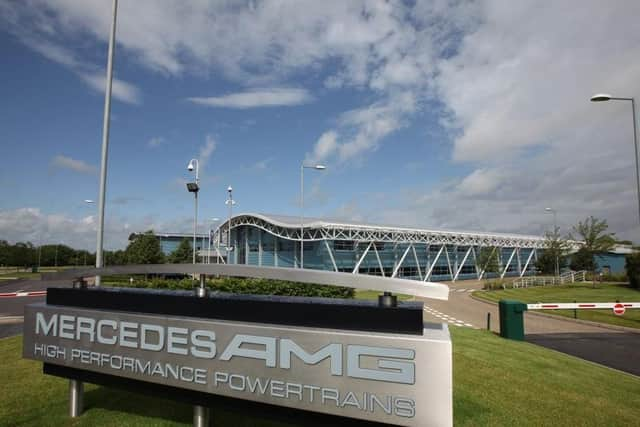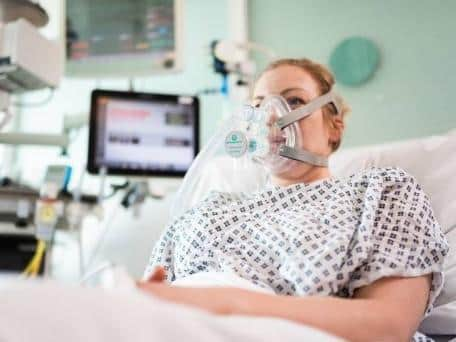Brixworth F1 boffins win race to produce breathing aid ahead of surge in Covid-19 patients
and live on Freeview channel 276
Boffins at Mercedes' Formula One factory at Brixworth put their foot down to help medical experts produce a breathing aid that can help keep Covid-19 patients out of intensive care.
Mechanical engineers from the Mercedes AMG High Performance Powertrains HQ in Northamptonshire worked round the clock in partnership with University College London and medics from UCL hospital to produce a prototype in just 100 hours.
Advertisement
Hide AdAdvertisement
Hide AdNow, 100 devices are on their way to hospital for clinical trials with a rapid roll-out nationwide ahead of the predicted surge in coronavirus hospital admissions.


The Continuous Positive Airway Pressure breathing aid was used in Italy and China to help Covid-19 patients with serious lung infections. The UK team reverse engineered the device to make it suitable for mass production.
Latest figures issued on Sunday March 30 say there are 19,522 confirmed cases of Covid-19 in the UK — 126 in Northamptonshire — and 1,228 people have died after testing positive for the bug. But health experts predict the number of cases will not peak for another two or three weeks.
Mercedes-AMG HPP managing director, Andy Cowell, said: “The Formula One community has shown an impressive response to the call for support, coming together in the ‘Project Pitlane’ collective to support the national need at this time across a number of different projects.
Advertisement
Hide AdAdvertisement
Hide Ad"We have been proud to put our resources at the service of UCL to deliver the CPAP project to the highest standards and in the fastest possible time frame.”


Project Pitlane was dreamed up by UK-based F1 teams offering their crack technicians to help design and manufacture medical devices during the coronavirus crisis. The sport's ability to respond rapidly to engineering and technological challenges allows the group to add value to the wider engineering industry’s response.
UCL's professor Tim Baker added: “We were privileged to be able to call on the capability of Formula One and given the urgent need, we are thankful that we were able to reduce a process that could take years down to a matter of days.
“From being given the brief, we worked all hours of the day, disassembling and analysing an off-patent device. Using computer simulations, we improved the device further to create a state-of-the-art version suited to mass production."
A message from the Editor:
Advertisement
Hide AdAdvertisement
Hide AdThank you for reading this story on our website. While I have your attention, I also have an important request to make of you.
In order for us to continue to provide high quality and trusted local news on this free-to-read site, I am asking you to also please purchase a copy of our newspaper when you do your weekly shop.
Our journalists are highly trained and our content is independently regulated by IPSO to some of the most rigorous standards in the world. But being your eyes and ears comes at a price. So we need your support more than ever to buy our newspapers during this crisis.
With the coronavirus lockdown having a major impact on many of our local valued advertisers - and consequently the advertising that we receive - we are more reliant than ever on you helping us to provide you with news and information by buying a copy of our newspaper.
Thank you.
Comment Guidelines
National World encourages reader discussion on our stories. User feedback, insights and back-and-forth exchanges add a rich layer of context to reporting. Please review our Community Guidelines before commenting.